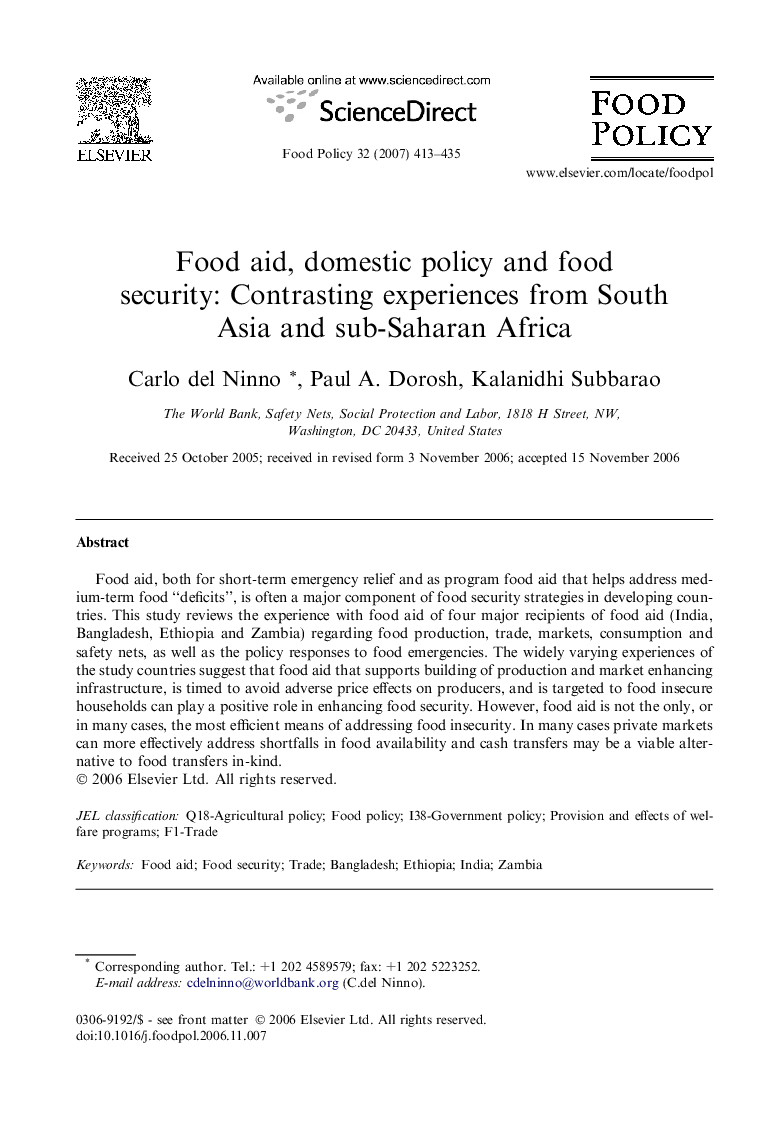| Article ID | Journal | Published Year | Pages | File Type |
|---|---|---|---|---|
| 5071188 | Food Policy | 2007 | 23 Pages |
Abstract
Food aid, both for short-term emergency relief and as program food aid that helps address medium-term food “deficits”, is often a major component of food security strategies in developing countries. This study reviews the experience with food aid of four major recipients of food aid (India, Bangladesh, Ethiopia and Zambia) regarding food production, trade, markets, consumption and safety nets, as well as the policy responses to food emergencies. The widely varying experiences of the study countries suggest that food aid that supports building of production and market enhancing infrastructure, is timed to avoid adverse price effects on producers, and is targeted to food insecure households can play a positive role in enhancing food security. However, food aid is not the only, or in many cases, the most efficient means of addressing food insecurity. In many cases private markets can more effectively address shortfalls in food availability and cash transfers may be a viable alternative to food transfers in-kind.
Related Topics
Life Sciences
Agricultural and Biological Sciences
Food Science
Authors
Carlo del Ninno, Paul A. Dorosh, Kalanidhi Subbarao,
